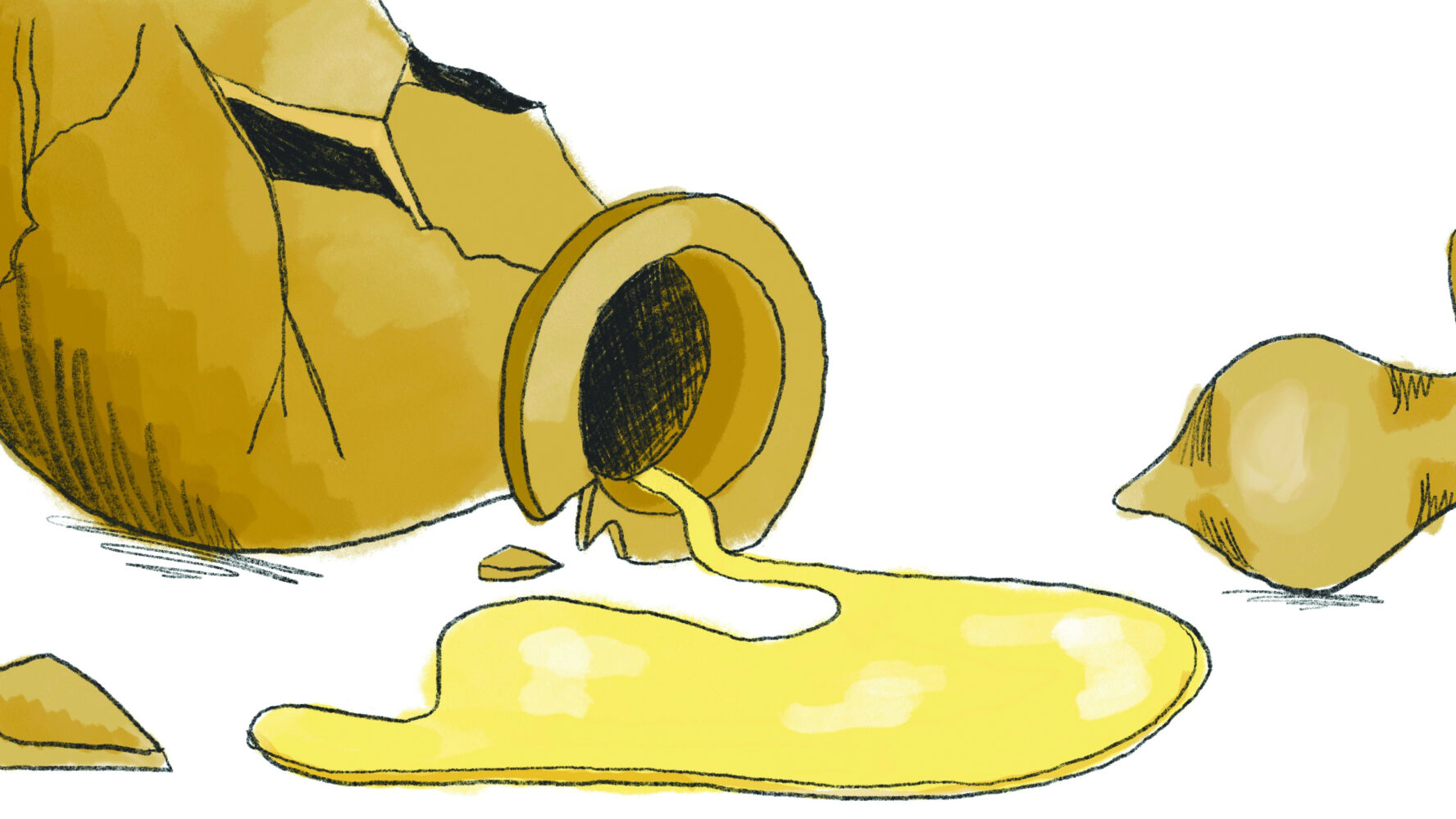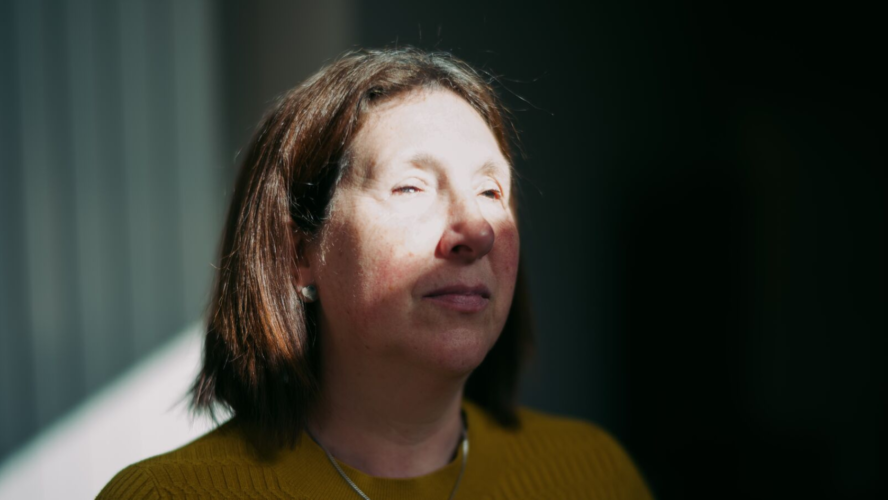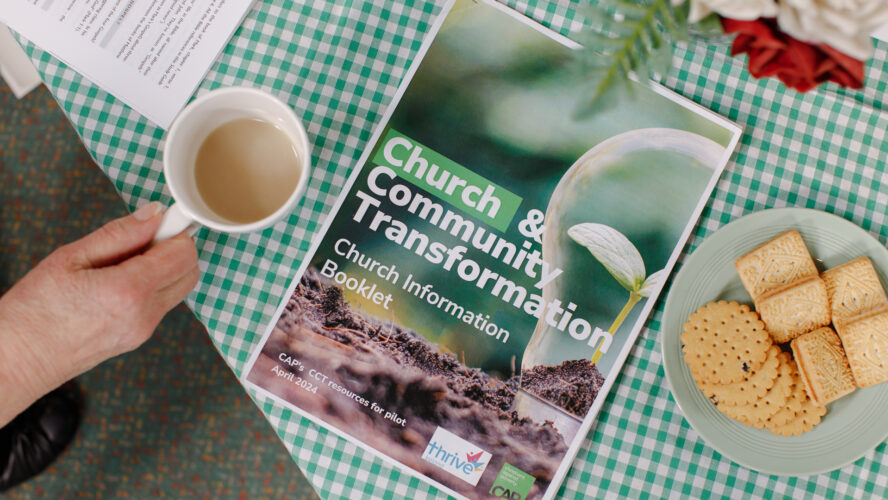
We all make assumptions about people, but I wonder if we’re aware of how often we do it. From how someone speaks, their clothes and where they’re from, to how they ended up in debt and the choices they made – we make up our minds in a matter of seconds.
We see this very human way of thinking play out in Luke 7:36–39, when Jesus is invited to a dinner by Simon, a Pharisee. During the dinner, a woman arrives and pours out a jar of perfume over Jesus’ feet as an act of worship, much to the horror of Simon and the other guests. Simon comments on the ‘kind of woman she is’ and describes her as ‘a sinner’.
While nowhere are we told any of the details of this, I think nearly all of the preaching I’ve ever heard on this story concludes that she was involved in sex work. That’s probably what you think about her too. And maybe it was true. The indignation and revulsion Simon shows towards her would be in line with that. But it’s an assumption.
As I reflect on this story, it strikes me how little is said about the wider circumstances this woman faced. If we get to assume she was a sex worker, we should also assume that she lived in poverty. Perhaps she was desperate to provide for herself and her family, and had exhausted every other avenue to survive. I can’t imagine this was the life she ever intended to lead.
And while we get to jump to conclusions about her, we never really make assumptions about the structures and systems that failed her, forcing her down a path she’s unlikely to have ever chosen for herself. All of our attention is focused on her choices and what she had done wrong. Why do we naturally dwell so much less on the injustice that surrounded her situation?
For far too long, a way of thinking has prevailed that if people are in poverty, it must somehow be their fault. The media bombards us with stereotypical images of ‘the poor’ – over the last two decades, TV programmes like The Jeremy Kyle Show (2005–2019), Benefits Street (2014–2015) and Shameless (2004–2013) have perpetuated a myth that poverty is a self-made condition based primarily on laziness, greed and entitlement.
Sadly, these are the false assumptions made daily about the people we seek to serve at Christians Against Poverty. I remember meeting Laura, who was receiving help from CAP. She told me about the many people she had encountered who simply couldn’t see past the immediate stereotype of a single mum in financial crisis. What they didn’t know was that Laura became trapped in problem debt due to illness, domestic abuse, the premature birth of her son and the fact that social security failed to provide them with enough money to live on. It ravaged her mental health, pushing her to try to take her own life – twice.
Overwhelmingly, poverty is due to circumstances beyond any individual person’s control. Our most recent client survey revealed that the three most common reasons people had ended up in unmanageable debt were mental ill-health, low income and relationship breakdown. There are factors of inequality that can contribute too, like where in the UK we live, the colour of our skin, or if we have a disability.
And, sometimes, the choices we make can have consequences that make life a struggle. We can make decisions that only serve to create or deepen our poverty situation. We’re human; we’re fallible.
Choices, however, are very often borne out of complex circumstances. Low self-esteem and an absence of opportunities can lead us to make certain decisions. A lack of positive role models during childhood can shape and influence us as adults. Living without a community and a support network can leave us feeling despondent and out of options. Why and how poverty exists is endlessly complex and multi-faceted.
None of this makes someone more or less deserving of compassion, support and the opportunity to turn their life around. We are all precious creations, lovingly sculpted in God’s own image. We are all worthy of help, free from judgement and condescension, and poverty has no place in the kingdom of God.
When confronted by the woman with the perfume, Jesus breaks with all cultural expectation of his time to welcome and honour her (Luke 7:44–50). He shows unconditional mercy and grace towards her, even when he’s no doubt surrounded by stares of disdain and gasps of disbelief from the other dinner guests. Far from questioning her morals and any choices she had or hadn’t made, what matters most is the woman’s devotion. ‘Your sins are forgiven,’ Jesus says to her. ‘Your faith has saved you; go in peace.’
It’s not the only time we see Jesus refusing to conform to social norms. He speaks to the Samaritan woman at the well, ostracised from society due to assumptions made about her (John 4). He touches and heals a man with leprosy who society has deemed ‘unclean’ (Matthew 8). Even the story of Jesus’ birth is filled with people on the margins: an unmarried woman chosen to give birth to the Son of God; lowly shepherds invited to be amongst the first to meet him (Luke 1–2).
Jesus’ love is unconditional. The mercy and grace of God is immeasurable. It overflows, irrespective of the paths we may choose to take. It isn’t based on assumptions, stereotypes and judgements. Indeed, no human on earth is deserving of salvation, and yet he chooses to save us nonetheless. ‘Love… keeps no record of wrongs,’ reads 1 Corinthians 13.
If, then, we are commanded to love others as Jesus loves us (John 13:34), then we too should show unconditional mercy, grace and love to everyone. It may be easier to extend compassion when we understand that someone’s poverty situation is being driven by things they can’t control or change, but we must choose to extend the grace of God rather than a path of judgement in all circumstances.
Challenging these deeply ingrained ways of thinking is a crucial step in the fight against UK poverty, and we must all play our part. Together, we must seek to be more like Jesus, so that we might move towards the world that God envisions.




